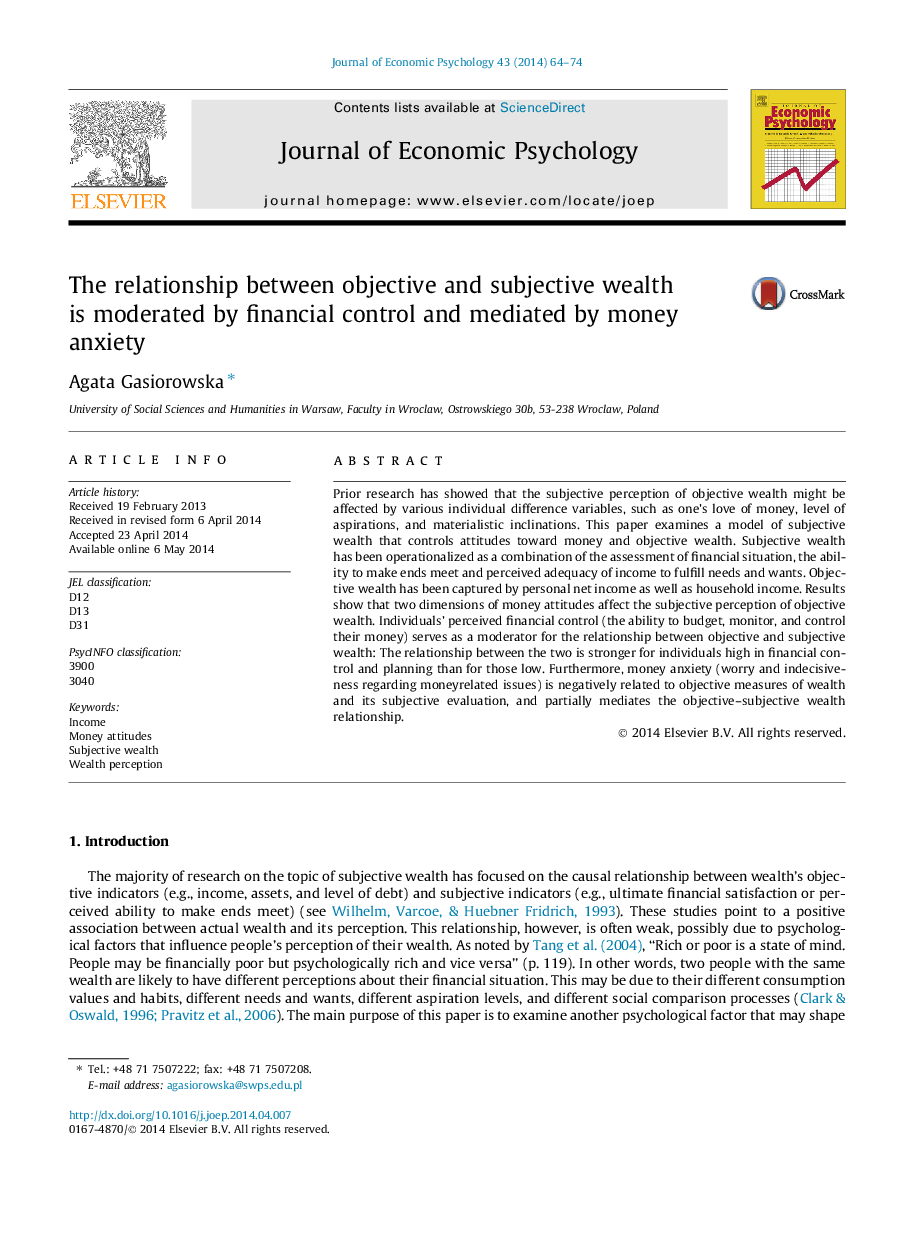| کد مقاله | کد نشریه | سال انتشار | مقاله انگلیسی | نسخه تمام متن |
|---|---|---|---|---|
| 884952 | 1471723 | 2014 | 11 صفحه PDF | دانلود رایگان |
• The relation between objective and subjective wealth is affected by one’s attitudes toward money.
• The perceived ability to control own finances moderates the examined relationship.
• Money anxiety mediates the relationship between objective and subjective wealth.
Prior research has showed that the subjective perception of objective wealth might be affected by various individual difference variables, such as one’s love of money, level of aspirations, and materialistic inclinations. This paper examines a model of subjective wealth that controls attitudes toward money and objective wealth. Subjective wealth has been operationalized as a combination of the assessment of financial situation, the ability to make ends meet and perceived adequacy of income to fulfill needs and wants. Objective wealth has been captured by personal net income as well as household income. Results show that two dimensions of money attitudes affect the subjective perception of objective wealth. Individuals’ perceived financial control (the ability to budget, monitor, and control their money) serves as a moderator for the relationship between objective and subjective wealth: The relationship between the two is stronger for individuals high in financial control and planning than for those low. Furthermore, money anxiety (worry and indecisiveness regarding moneyrelated issues) is negatively related to objective measures of wealth and its subjective evaluation, and partially mediates the objective–subjective wealth relationship.
Journal: Journal of Economic Psychology - Volume 43, August 2014, Pages 64–74
